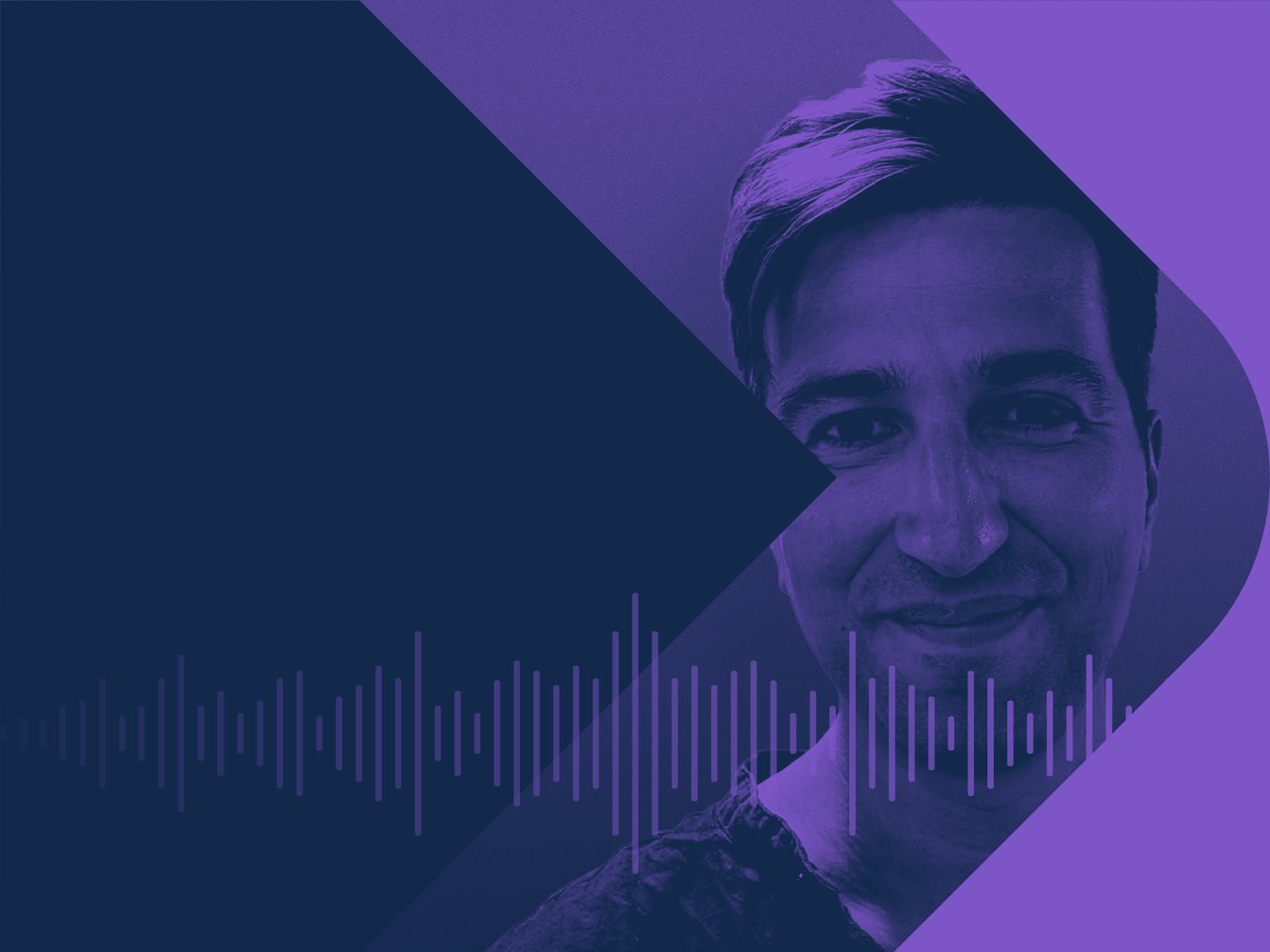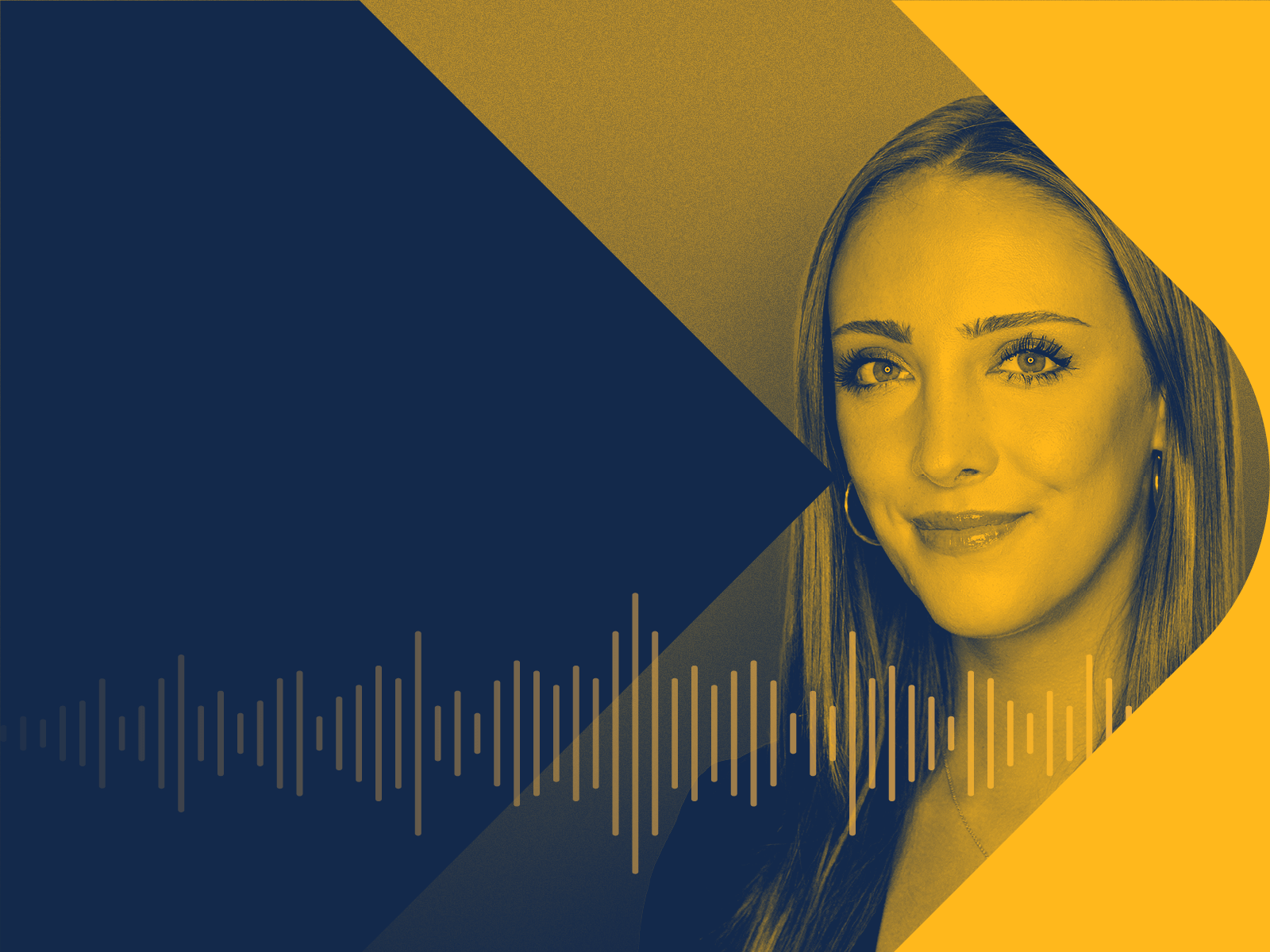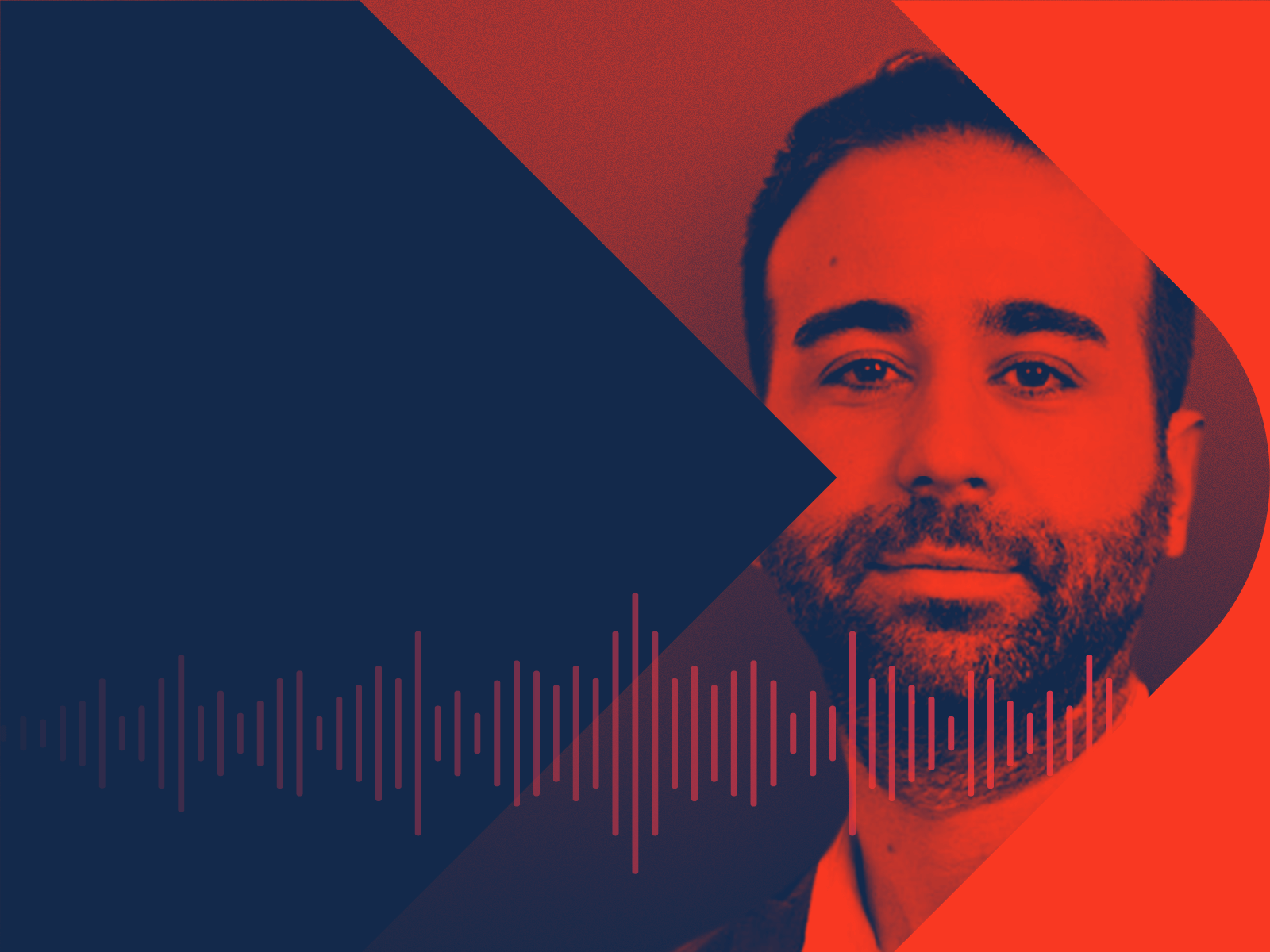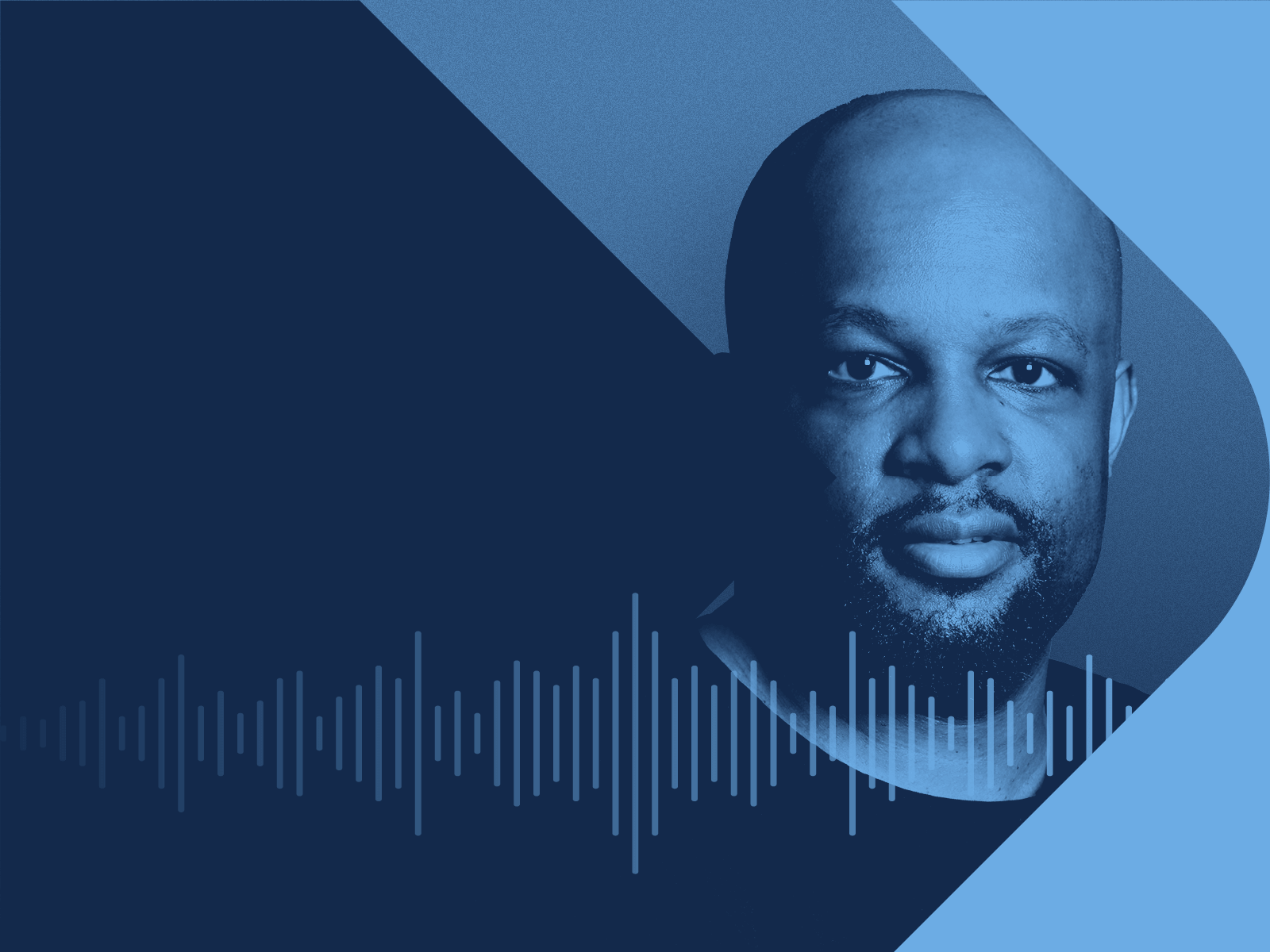"Compassion and empathy”
People are the lifeblood of the industry. For the industry to continue to thrive and enable people to bring the best versions of themselves to the workplace and do their best work, we need to do everything in our power to prioritize mental well-being and ensure people feel supported at all times. In recent times, mental health has rightly been given more airtime, shining a light on important topics. To continue to move forward in this area, it's vital we hear people's stories so we can empathize, show compassion, and create a better future.
In the latest episode of our Identity Architects podcast, InfoSum's VP, Corporate Marketing, Ben Cicchetti, sat down with Andrew Spurrier-Dawes, Global Head of Client and Agency Enablement, Resolve at Choreograph, to discuss mental health and growing awareness, first-party data, the cookieless future, and more.
“Helping people has always been just something I've wanted to do. [...] Mental health is something that everybody's got, it’s exactly the same as physical health.”
One of the most important developments in recent times is the acknowledgment that everyone has ‘mental health.’ As Andrew notes, it’s the same as physical health; people need certain things to help them improve or maintain their mental health.
“It's really important just to understand ourselves. So, let's work out what you need to learn about yourself. [...] With fitness and health, we all know what the answer is. It is not difficult. You need sleep, you need water, you need exercise, and it's the same with mental health. You need sleep, you need water, you need exercise, you need connection. You need to speak to people. You need community.”
We couldn’t agree more. But where do we get that connection?
“There are third spaces at the moment, so the idea is that your first space is your home. Your second space is your work, and then the third space is a space outside of those where you can hang out, and we're seeing a lot of a dramatic loss in them in society.”
People are hardwired for genuine human-to-human connection, which, unfortunately, has been in decline with the advent of the Internet, the explosion of devices, and the introduction of social media. We are more connected than ever before, yet we lack that real human connection.
“Where's the humanity? Where's the comparison set coming from? Is it from an algorithm to find a group of highlights of people you'll never know who aren't from where you are, who are trying to sell an image and trying to sell something or are they from your community where they’re not filtered, it's people going through struggle, it's people who will be able to help you when you're locked out your house, it’s the people who care about you where you've got a joint ambition to make what where you live and everything you are brilliant and who share a connected set of ideals. That's maybe the shift in ideals from being community-based to being online-based has been quite a damaging thing.”
Being part of the media and advertising industry, we have an important role in making people aware of this. We can affect positive change through our work and how we invest in the internet.
“What community are we encouraging? And what is that connection? Where's the connection coming from? I think the internet is responsible for that. So, what world are we encouraging in our investment in the internet?”
Going back to the concept of thirds, we spend a significant amount of time at work. We have a responsibility as an industry to further positive change in society but it must start internally.
“The biggest challenge we have overcoming mental health awareness, to grow and become a default factor in organizations, I think, is a really difficult one because it makes me think about what responsibility an employer has towards the mental health of its employees. Do I want my employer being my therapist, being my nanny? I'm not sure, but I think what it comes back to is what the cost of work is [...] What do we think people's reaction will be to ‘I’m depressed’ or ‘I've had episodes’ or ‘I need the break, I can't just be running a hundred miles per hour’ or whatever it is. [...] The power in showing is about legitimizing and giving a language to what other people are sharing that they may not yet understand or they may not feel that they're able to share yet and I think that's the power of it.”
Andrew raises a vitally important point: To grow awareness around mental health within organizations, we need to create a safe space for people to come forward and feel comfortable sharing what they’re feeling or experiencing without judgment or repercussions. We need people, especially those in leadership positions, to share and be open about their stories to help people who may be struggling.
“Why do people leave jobs? Why do people stay in jobs? It's because of people. It's not about money. Joe Strummer said without people, you're nothing, and so we have to think about the humanity and the connection that we're building as an industry, and it has to start with leadership training, I think. And so that will be better for mental health in the long term, I think, because it will, rather than trying to stop symptoms, start to understand the humanity, and it'll bring compassion and empathy in a profit-positive and a growth-positive way but also in a growth-positive way for people as well.”
When we lead with compassion and empathy, we not only allow a healthy culture to flourish but also produce better results on a personal and business level. More importantly, and as Andrew explains through his own experience below, we empower people to ask for support so that the load can be shared.
“And so the thing I realize is people will give you space if they know. If they don't know, how can they help you? So the people at Mediacom and Wavemaker were unbelievable in saying you do what you need. I've never seen anything greater in the compassion than I saw from the people there, from the team on Mars, and then the team on Mars at Wavemaker. The clients were great as well. Just what do you need? We know you're still doing the job, and that's cool, but you don't have to nail everything. Let's share the load.”
This shows the importance of creating a culture of openness. Unfortunately, it can be hidden in plain sight when people are struggling. People may be firing on all cylinders, hitting targets successfully, and appearing happy, but below the surface, things aren’t right. Having that safety and culture where sharing is encouraged lets people support one another. We’re grateful and thankful for people like Andrew who are willing to come forward and share their stories.
Before we wrapped up the conversation, we couldn’t let Andrew go without diving into his journey within the industry.
“There are some amazing people in the industry, and it fits everything from right to left brain, I think that's a really wonderful thing. It's always changing. It's really stretching. It's really challenging to me on a personal basis in terms of my ego and how to deal with things, and it's given me, who's just a normal person from Cardiff, a million opportunities which I can be grateful for.”
Talking of challenges and opportunities, the success of any modern business is underpinned by data and the ability to unlock insights and performance from that data. How can companies do that in today’s privacy-first world?
“Data is information. [...] If you think about the three elements, it's very clear. How is it collected? Massive question, legal question, moral question. How is the data collected? Why on earth are you collecting data? [...] Then we get into information. So how, and the biggest question nobody talks about, is how do we make that data clean and interoperable? [...] Then the third part is insight. So what is interesting in that data and what's missing in the data?”
Obviously, there’s great responsibility that comes with collecting and handling data; you must protect it at all costs. But there’s a common misconception that you sacrifice performance in the name of privacy or vice versa.
“The idea that you can't have people knowing what you're doing with the data, and having a choice, and then having performance as well. I love the idea that we have to invade people's privacy and have the surveillance economy in order to drive performance. That is insane to me.”
Well said. When we talk about first-party data, we naturally talk about the cookieless future. This transition into this new world isn’t about replacing third-party cookies with something else. It’s about reimagining and rethinking data-driven strategies from the ground up.
“The cookieless future is less about targeting, which everyone seems to be focused on. It's more about measurement and people in the digital world having to examine their value systems and try and understand how they are driving value for their businesses. Obviously there's a need to monitor some metrics like click-through rate just to see if anything's going horrendously bad. But I think you can have privacy and can drive effectiveness because we did it before we could track people. We will do it afterward.”
We covered a lot of ground in this episode, with the overarching theme being humanity, compassion, and empathy. So it was only right that he left us with this parting advice for people in the industry:
“My secret weapon is just generosity. I think generosity always always always pays back massive dividends. It's never not helped, even if I'm generous with time and space and empathy and just giving people the benefit of the doubt that's a huge part of generosity. It always pays back, even if it's not from that person, but it's on the culture that you're building.”
Thanks, Andrew, for the chat!





